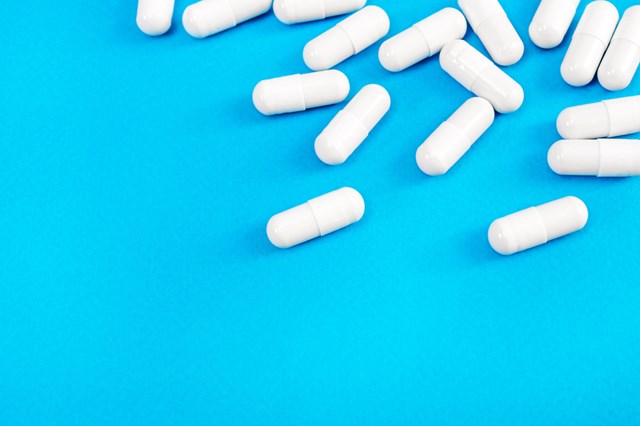
Our guts stop most probiotics from colonizing, according to a study. Shutterstock
Probiotics are packed into all sorts of pills and products promising to keep our guts healthy. But not only do most of the bugs not stick around in our bodies, they could, in fact, be harming us, researchers believe.
As many as 3.9 million adults in the U.S. take prebiotic or probiotic supplements, according to recent estimates cited by the authors of two studies published back-to-back in the journal Cell. Users pop the pills in the hope of easing everything from gastrointestinal problems to fortifying the immune system, defending against infectious disease and preventing cardiovascular disease.
While probiotics may help patients with specific digestive issues, there is little concrete evidence to support the apparent benefits to the average person, the Israel-based authors at the Weizmann Institute and Tel Aviv Medical Center said. Probiotics are therefore a controversial topic among health experts.
In what is believed to be one of the first studies of its kind, the team recruited 25 volunteers to undergo upper endoscopies (where surgeons use a camera to survey the internal organs) and colonoscopies (to examine the large bowel and part of the small bowel). Of the total, 15 were split into two groups and given either generic strains of probiotics, while the others were given a placebo. Two months later, the participants then repeated the invasive examinations.
This saw the team stray from examining patients’ excrement alone: a commonly used method for charting the microbes that live in a person’s gastrointestinal tract. The scientists hypothesized that while this is a useful method, examining the gut colonization directly would likely be more revealing.
The team found probiotics didn’t colonize the guts of all the participants. The groups were categorized as “responders” and “non-responders,” or “persisters” and “resisters.” In the former, probiotics populated their guts, changed their microbiome and impacted their human gene expression. But the others didn't see the same effects.
It is therefore unlikely a single probiotic product could benefit the general population, the authors concluded.
Dr. Eran Elinav, an immunologist at the Weizmann Institute of Science and senior author of the study, told Newsweek: “The current practice, followed by millions of individuals who consume probiotics with the hope that they will improve their health and prevent disease, needs to be modified to one that is centered on the individual.”
What’s more, the researchers warned taking probiotics after a course of antibiotics in the hope of aiding the growth of bacteria could be harmful.
Although sometimes necessary, consuming antibiotics wipes out even the so-called good bacteria in our bodies. But taking probiotics was found to inhibit the regrowth of indigenous bacteria in the gut for many months. This could bring about long-term implications to an individual's health, Elinav said.
But when the gut was replenished with indigenous microbiome collected before antibiotics were taken, the gene-expression profile of the gut returned to normal within days.
“This again demonstrates that a person-specific live bacterial approach is far superior to empiric probiotics, which in this setting may even harm the healthy host and microbiome post-antibiotic reconstitution,” said Elinav. The “one size fits all” approach to probiotic use should be abandoned, he argued.
Elinav described the results as “very surprising and even alarming given the widespread over-the-counter use of these supplements, but it represents an opportunity to advance live bacterial therapy towards one that is more individualized, effective and safe.”
“Our studies do demonstrate in a very direct way that probiotics effects in healthy conditions are personalized and transient at best, and if you take a probiotic that you buy at your local supermarket you have no way of knowing whether it would pass from one end to the other or colonize your gut, where it may or may not induce health effects.”
Chloe Hall, a qualified dietitian and British Dietetic Association spokesperson who was not involved in the study, told Newsweek the findings hit back at previous research that suggested taking probiotics with antibiotics could cut the risk of developing Clostridium difficile, the bacterium that can cause diarrhea.
“However the study only uses a very small number of people who were healthy volunteers,” she said. More participants are needed to give more meaningful results, and further research is required on what probiotics may work for specific conditions and in specific population groups, Hall commented.
“Probiotics may work for some people with specific conditions such as irritable bowel syndrome or pouchitis, but they won’t work for everyone.”
Dr. Satish S.C. Rao, director of neurogastroenterology and motility at the Medical College of Georgia at Augusta University, who was not involved in the research, told Newsweek the study is “most interesting and provocative.”
If the research can be confirmed “it would significantly question our current clinical practice of prescribing probiotics for patients with antibiotic-induced diarrhea,” he said.
Hall concluded: “Probiotics can be expensive and there is not much evidence to support general health claims about them and, therefore, I wouldn’t recommend them in healthy people without any symptoms that may indicate it. It is thought at present that probiotics should be safe to use in those with healthy immune systems.”
